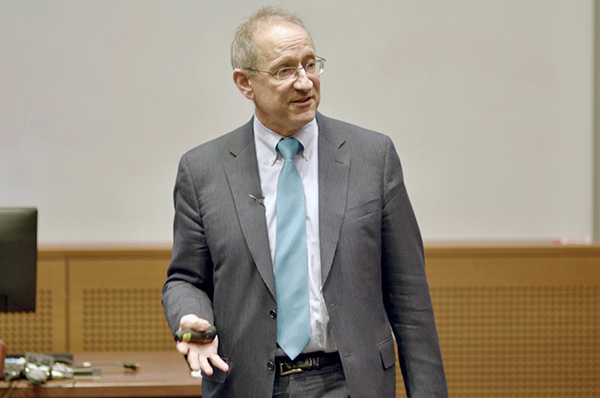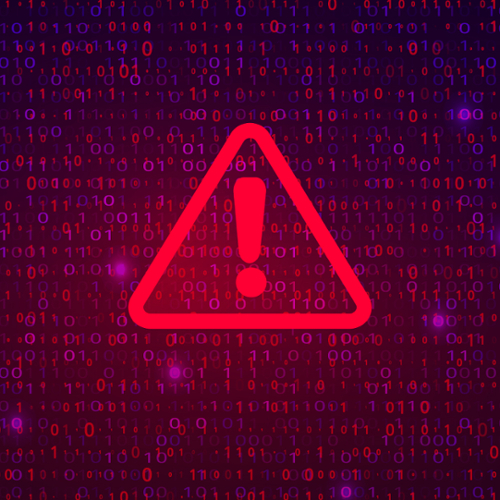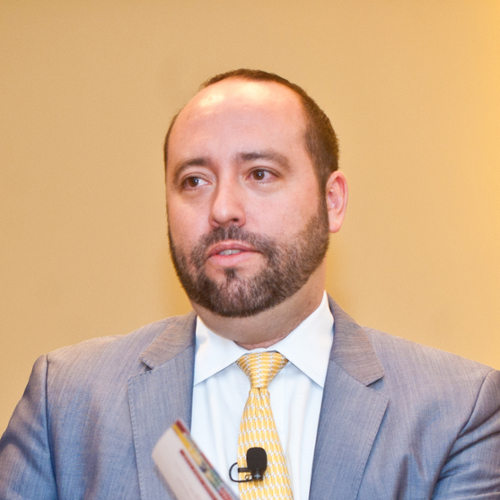
Prof. Stephen Cecchetti is using his deep expertise to analyze the Federal Reserve's response to the economic crisis created by the coronavirus pandemic.
In just a few short weeks this spring, the Federal Reserve launched a dizzying array of policies in the wake of the coronavirus pandemic. It was an extraordinary — and unprecedented — effort to prop up the American economy.
Watching all of this unfold was Stephen Cecchetti, the Rosen Family Chair in International Finance at Brandeis International Business School.
Cecchetti is no stranger to working on the front lines of a crisis, having served as a senior official with the Bank for International Settlements during the Great Recession of 2007-09. In this role, he coordinated the immediate response of central banks around the world and later helped craft international standards designed to prevent a repeat event.
What strikes Cecchetti about the Federal Reserve’s response to the coronavirus is how rapidly the central bank has deployed all of the policy tools in its arsenal, many of which took months to develop and years to refine in the aftermath of the previous crisis.
“I can’t even think of anything else they could do,” said Cecchetti during a recent interview. “I’m not sure exactly what is left.”
Cecchetti shared his insights about the Fed’s current gameplan, how this crisis compares to the Great Recession and what “normal” might eventually look like once the worst of the pandemic is over. An excerpt from the interview is below.
Cecchetti will also take part in a live webinar with Dean Kathryn Graddy on Monday, May 18, at 8 p.m. EDT. Registration for “The Virus War: Relief, Recovery and Response” is now open.
I can’t even think of anything else they could do. They’ve backstopped all the financial markets: corporate bonds, municipal bonds, commercial paper money, market mutual funds, asset-backed securities. They may be lending to corporations. There's $400 billion that they’ve lent out to the rest of the world because they have to backstop the dollar system outside of the U.S. I’m not sure exactly what is left.
If I had to choose, I would trade for the last crisis in an instant. That would be so much better than this because with this — we have no idea. The economy has ground to a halt. Unemployment rates are going to go well over 20 percent. The amount of human hardship in the country and in the world is going to be enormous. The economy, in my view, is not going to come back very quickly. This is going to be with us for years.
Did you like to go out to fun places in the evening before the shutdown? I guess people in some parts of the country seem to be more willing to resume their normal activities. But many others are not going to be willing to do that for a while. And we’re already discovering from the places that are starting to open up that people, by and large, don't really want to go out yet. There isn't sufficient comfort to do so.
So I think the idea that we're open again by the end of the year is overly optimistic. And in the meantime, a lot of small businesses aren’t going to make it. They just can’t hold out forever. In fact, some industries are not going to recover for a very long time. The airlines, restaurants, hotels, hospitality, cruise ships come to mind.
The savings rate among people is going to go up. People are going to bed thinking, ‘I don't know what the world's going to look like when I wake up tomorrow.’ Everybody's thinking that way. That's going to be a huge drag because as a society we're going to need spending to dig us out of this.
We also have the wrong infrastructure for the world we’ll be waking up to. New York City is not going to work as well. Public transit, which some of us love in principle, is not going to be anywhere near as popular. More people will work from home, and that’s going to require restructuring — with transportation contracting as a result. With people not going out as much, and fewer restaurants, there’s also going to be more grocery shopping. The whole food supply chain will have to adjust.
And people are going to have a lot of debt. Maybe not the people who can continue working, but others will be in debt for a long time. There’s credit card debt, mortgages. If someone managed to get their mortgage deferred, will the bank add to the maturity or will it just add to payments? That would not be great. And firms are already borrowing. They are going to have a lot more debt. So all that debt will make the recovery slow.
Featured Stories
News Categories
@BrandeisBusiness Instagram
View this profile on InstagramBrandeis Intl. Business School (@brandeisbusiness) • Instagram photos and videos

December 18, 2020
December graduates honored at virtual celebration
December 15, 2020
Staying one step ahead of cyberattacks
November 10, 2020
Prof. Musacchio named NBER research associate